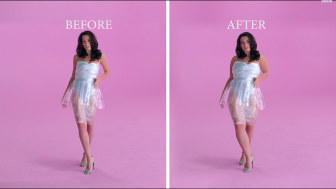
The views expressed in this article are those of the author and do not necessarily reflect the official position of the Aragon Outlook.
With over 300 million views on YouTube, “All About that Bass” by Meghan Trainor can easily be labeled one of the most popular songs of the year. And like many songs about body image, it has raised controversy on social media over its purported message.

While Trainor has claimed in interviews that the song promotes a positive message for women struggling with body images, many have argued that even though much of the song focuses on empowerment for curvy women, it also references thin girls, or “skinny b——” in a negative way.
In a world where beauty has long been defined by models and magazines, feminists have striven to promote the idea that all women are equally beautiful, not just one type. The goal is to promote equality, not bash one body type or label one better than the other.
That very thing occurs in songs like “Anaconda” by Nicki Minaj, “Booty” by Jennifer Lopez and Iggy Azalea, and “All About that Bass,” and it is counter-intuitive. The whole idea behind body acceptance is to get away from defining women by size and shape, yet these songs choose to promote curviness by shaming skinnier girls. Rather than fighting for a new standard of beauty, they are just switching from one to the other.
The idea of saying “real women are…” is fundamentally wrong. Unfortunately, in the past, society has tried to fill in the blank for us. Instead of taking out the shaming altogether, artists are now replacing it with the opposite in an effort to promote positive body image, but the reality is that there is no such thing as a “real woman.” Truthfully, the only kind of “real” women are women who are happy with whatever body type they were given and who choose not to conform to a particular standard of looks.

These musicians choose to not concentrate on the positive nature of acceptance, but degrade their argument with derogatory comments to the opposite body type that happens to fit the social norm. This is both counter-intuitive and disappointing. Body image and teaching girls to be confident is an important message, but it cannot be correctly conveyed if some female musicians decide to change it to a means of insulting other women.
It should be noted that in “All About That Bass,” Trainor sings, “I’m just playin’.” This may be an indication of her joking attitude towards the offensive things she says towards thin girls in her song, but that really doesn’t justify it. Body image is a serious issue that warrants respect and attention.





